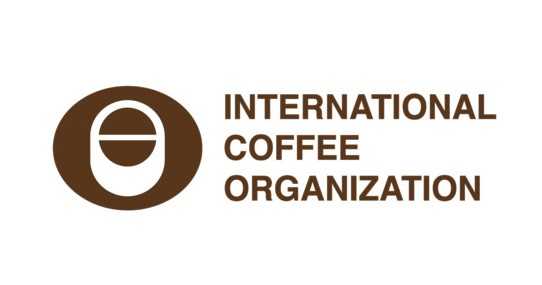LONDON, UK – In a new spirit of collaboration, the International Coffee Organization (ICO) is pleased to announce its landmark International Coffee Agreement 2022, formally welcoming to the table for the first time in 60 years the world’s biggest coffee retailers, roasters and manufacturers, together with coffee farmers.
Going forward, the private sector and civil society will participate as Affiliate Members in key discussions and decisions on the sustainable future of global coffee affairs with 75 coffee producing and importing nations, ICO Member Governments.
The goal of the Agreement is to find new ways to improve conditions in an over USD300 billion a year industry that provides a livelihood for millions of people from farmers to baristas across the world.
Indeed, coffee farmers have suffered much in the wake of a 2019 coffee pricing crisis, extreme weather including droughts, flooding, frosts and blight, resulting in crop losses and prompting many to quit a business that had been in their family for generations.
Smallholders, who only have less than one or two hectares of land each to produce coffee, for example, are the most vulnerable with incomes of just USD500 a year.
The Chair of the International Coffee Council, H.E. Ambassador Iván Romero-Martínez of Honduras, stressed that with the approval of the new Agreement the Council marked a new era for the ICO, its Members, the global coffee sector and for millions of coffee farmers whose work, every day, allow us to taste a wonderful coffee.
He further pointed out that ICO Members showed the world that the coffee sector is strong and united as ICO reaffirms itself as the centre of the “coffee diplomacy”, committed to making the coffee value chain more sustainable, inclusive, and resilient.
“We are entering a new era of cooperation with the private sector thanks to the landmark International Coffee Agreement 2022,” says Vanusia Nogueira, who joined in May as ICO’s first female Executive Director.
“The arrival of the world’s biggest high-street names and manufacturers as well as smallholders means that the whole coffee value chain can now address the biggest challenges facing the global sector in a way that is fair for all,” she adds.
The new International Coffee Agreement goes beyond the traditional divide between exporting and importing Members as all Members are committed to working together to address the increasing challenges of the coffee industry. The private sector and Government entities will coordinate strategies to address more efficiently those challenges.
This will benefit producers across 50 countries as coffee growers and their associations will be able to raise their concerns directly with retailers and manufacturers. Moreover, the new Agreement gives a clear and firm mandate to the ICO Secretariat to assist Members in putting together coffee sector development projects and mobilizing resources in areas such as pest and disease control, climate change adaptation among other mitigating strategies.
This comes at a time when expanding demand for coffee will contribute to maintaining a balance between supply and demand, supporting fair market prices.
“The industry has changed dramatically in the last 30 years in terms of governance and value distribution between producing and consumer nations. We can now come together and put a bigger emphasis on the development of the global circular coffee economy. Ultimately, we want to create a brighter future for millions of coffee farmers by adhering to the United Nations’ Sustainability Development Goals and work for more transparency, quality and fair pricing for billions of consumers. The new Agreement is a huge step in this direction,” she adds.
The new Agreement represents a fresh mandate for the ICO. It is the seventh of its kind since 1962 after the first International Coffee Agreement defined coffee export quotas at the United Nations in New York. The 2022 Agreement has come a long way since then, now that the ICO can bring all parties to the table for the first time and tackle challenges through international private and public cooperation, involving its Member Governments, which represent 93% of world coffee production and 63% of world consumption. Today, the world drinks more than 2 billion cups of coffee a day.
“The new Agreement is an effective instrument to paving the way to a more unified front, establishing a consensus and shared vision on how to best implement and promote actions by governments and the private sector, while also engaging all key coffee-related institutions, NGOs, international and financial institutions plus other development partners, research bodies and academia,” says Ms Nogueira, who previously represented Brazil, the world’s biggest coffee producer, in global coffee affairs as the Executive Director of the Brazilian Specialty Coffee Association.
While the ICO will not change its intergovernmental nature, as part of the Agreement, the current Coffee Public-Private Task Force is integrated into the ICO as the Coffee Public-Private Working Party. On top of this, the Private Sector Consultative Board will be transformed into the Board of Affiliate Members, creating a new institutional framework and leading to the non-government affiliation since 1963 when the ICO was established in London
The Agreement’s key points also redefine the ICO’s internal voting system and Members’ contributions to better reflect the transformation in the global coffee chain over the last 30 years, accounting for distortions between producing (exporting) and consumer (importing) countries as well as Arabica versus Robusta coffee producing nations.
The change in membership contributions to the administrative budget will increase the financial sustainability of the Organization and its capacity to carry out its mandate.
In terms of production, the world produces 4.18 million tonnes of Robusta coffee, or 69.67 million 60kg bags a year, and 6.07 million tonnes of Arabica, or 101.16 million 60kg bags, annually as of 2020. This is up from 1.74 million tonnes of Robusta and 4.34 million tonnes for Arabica coffee in 1991.


















